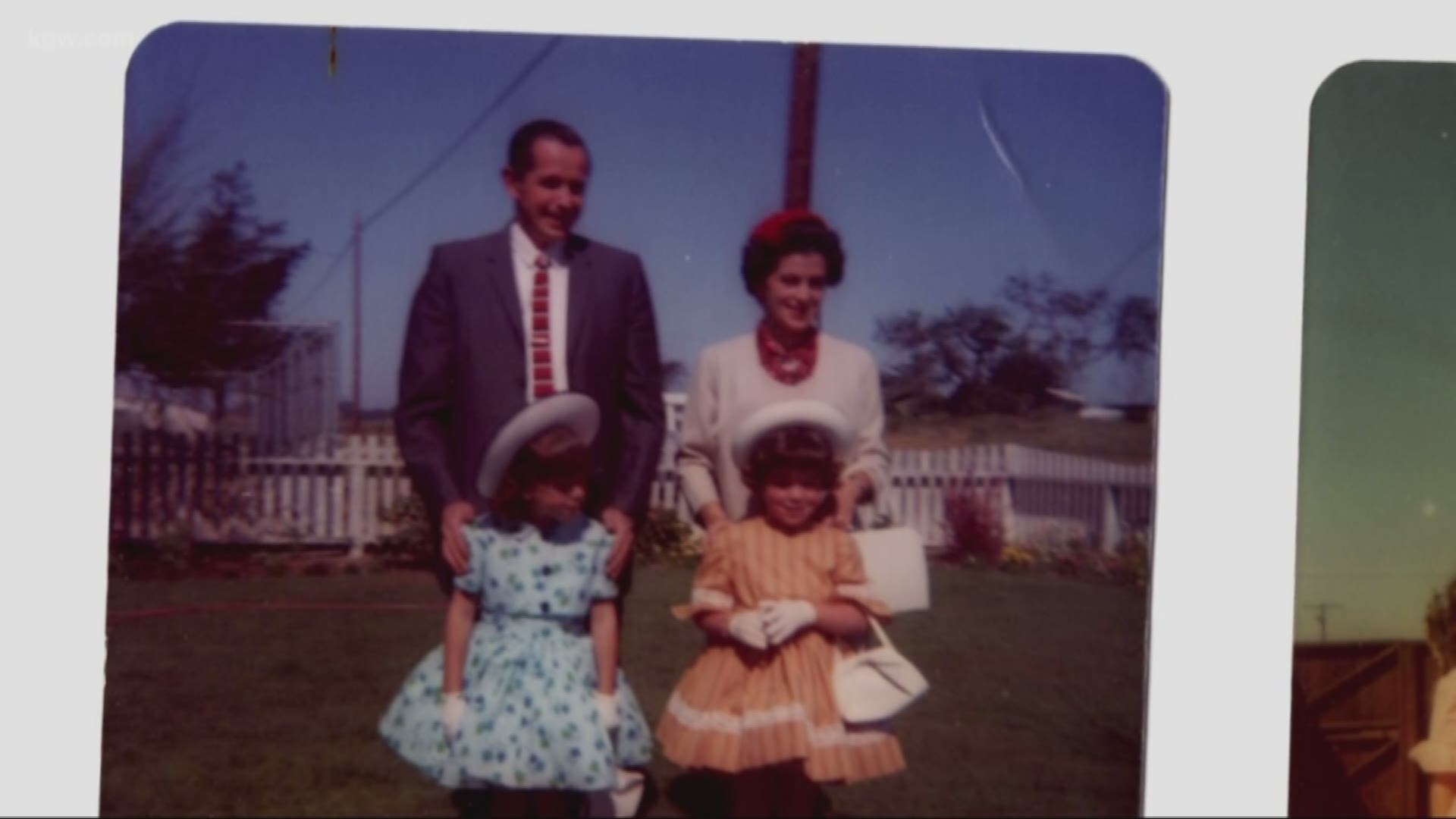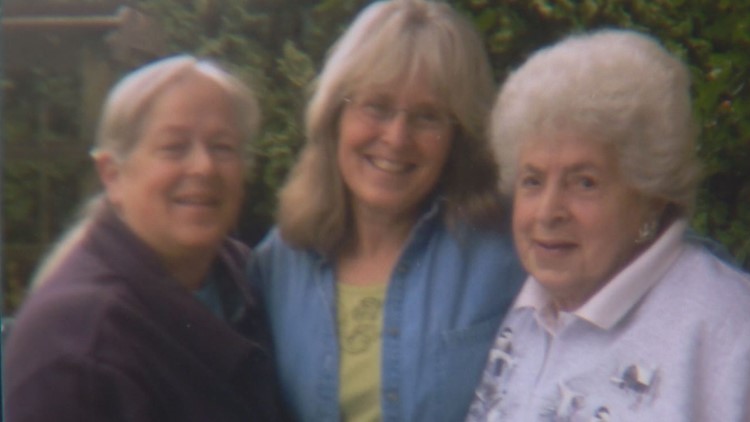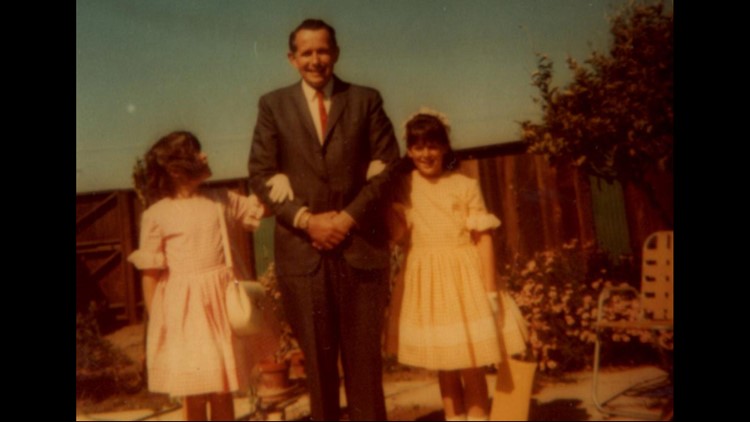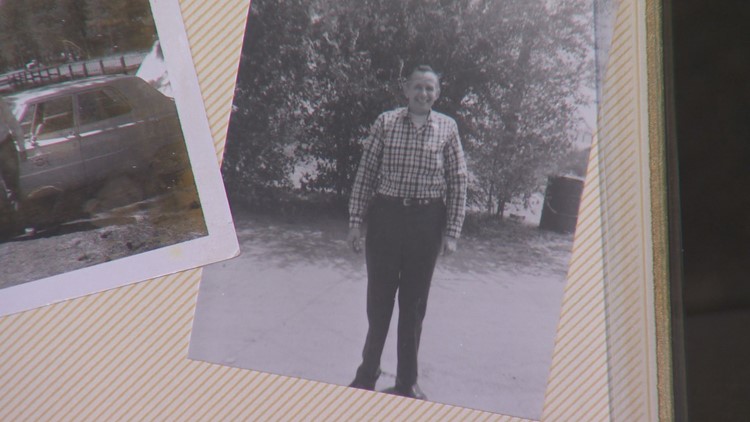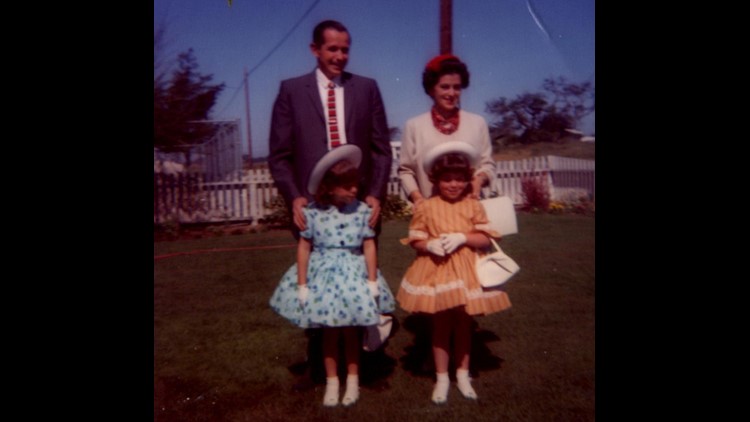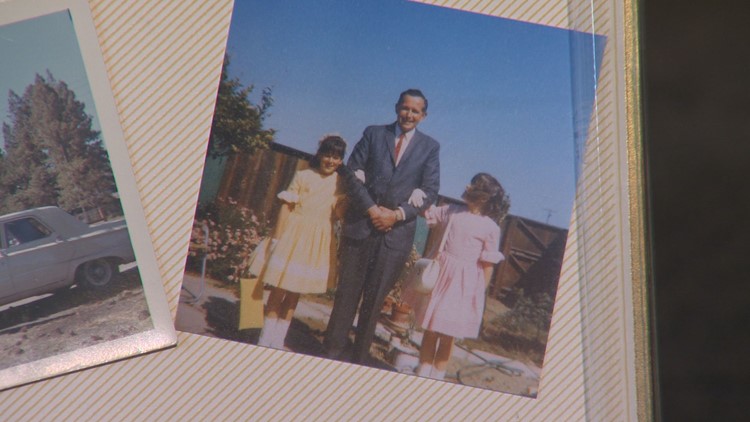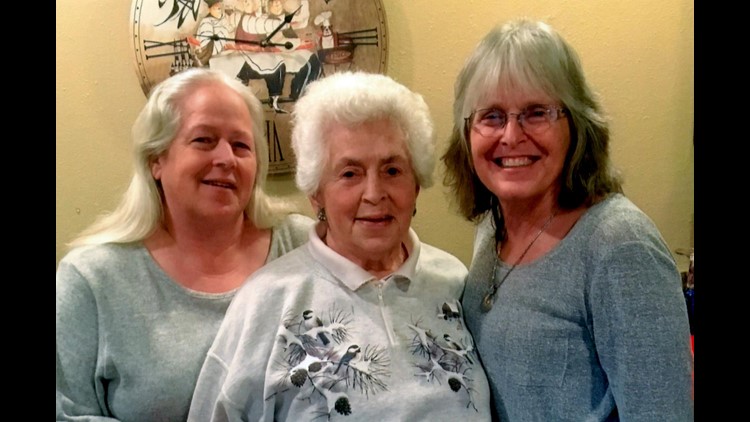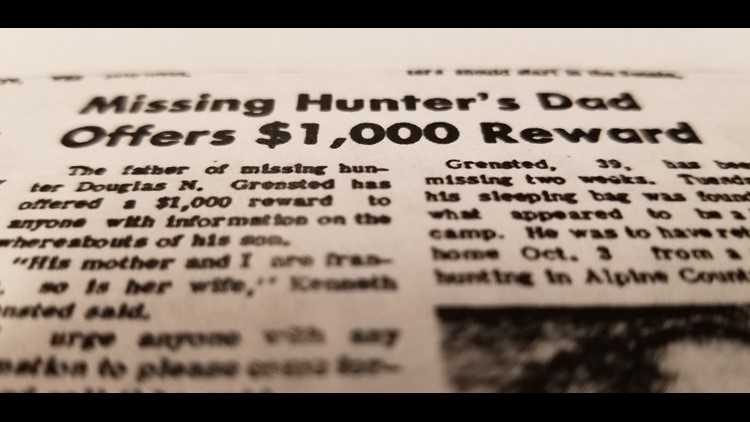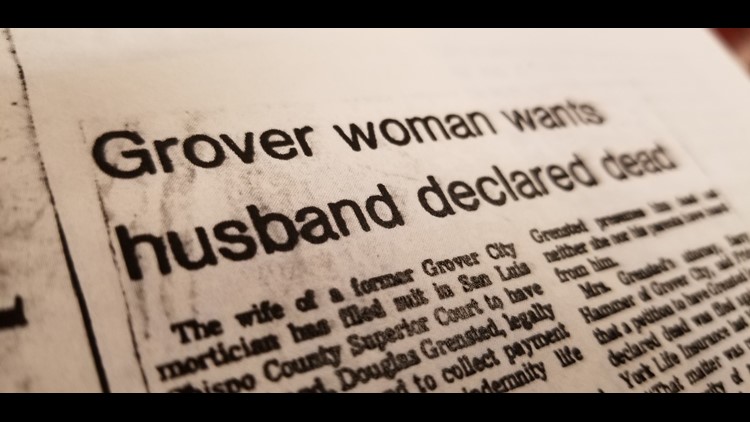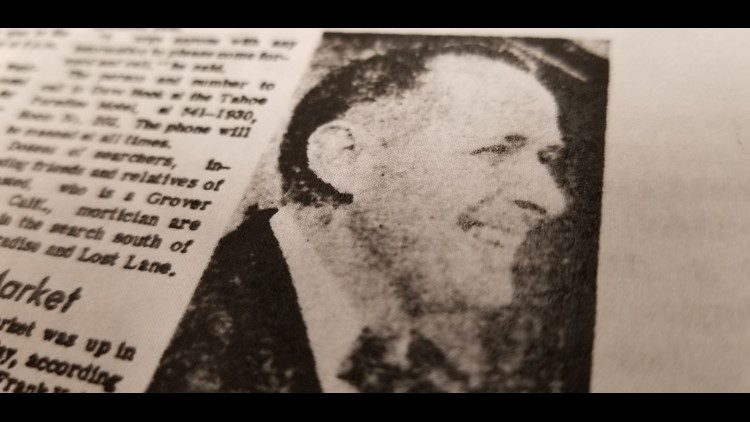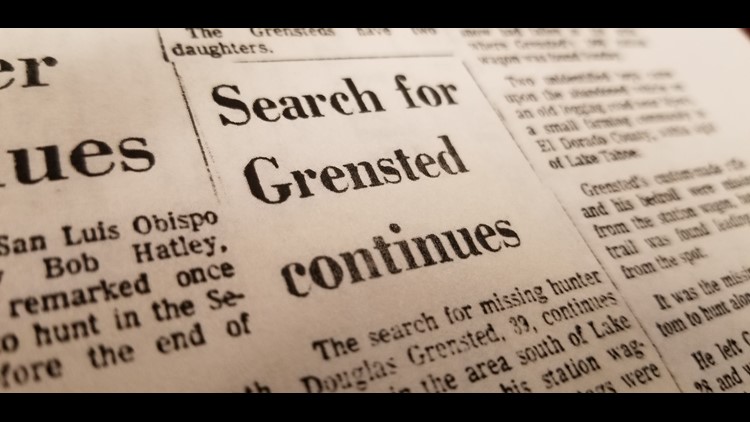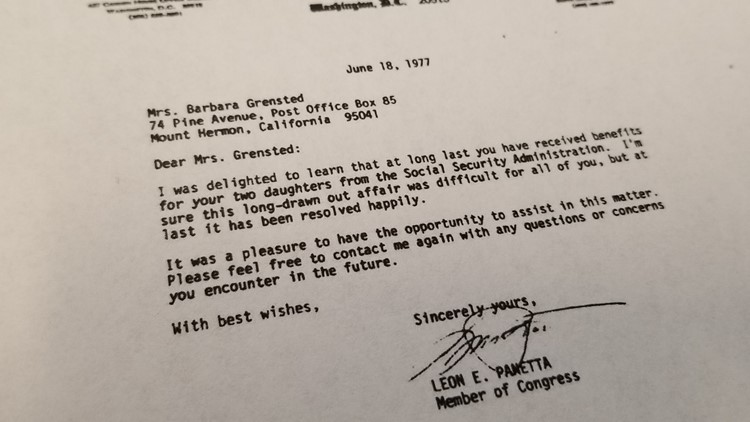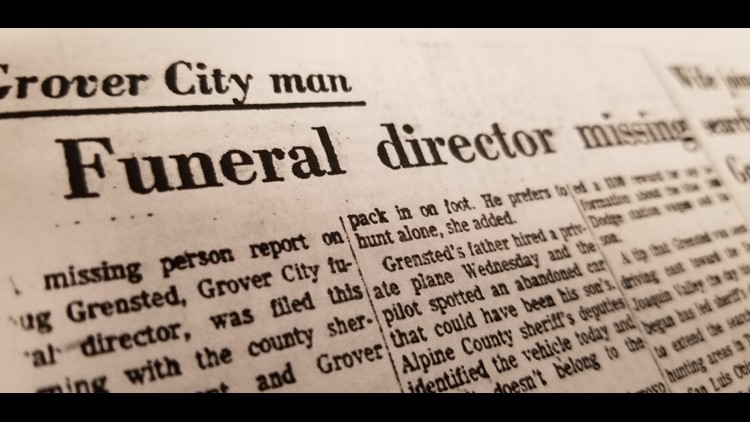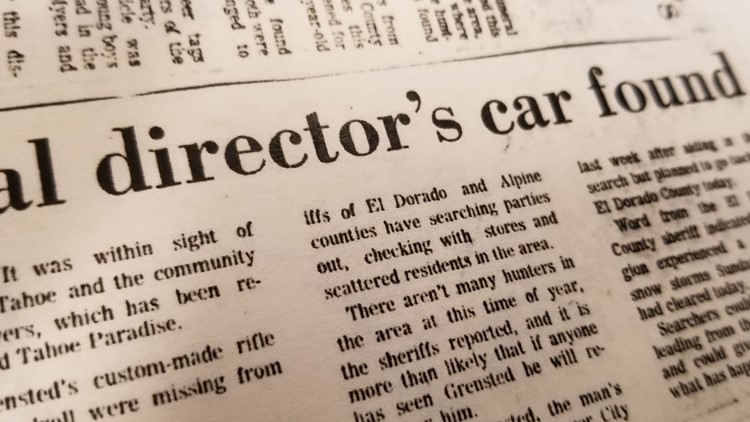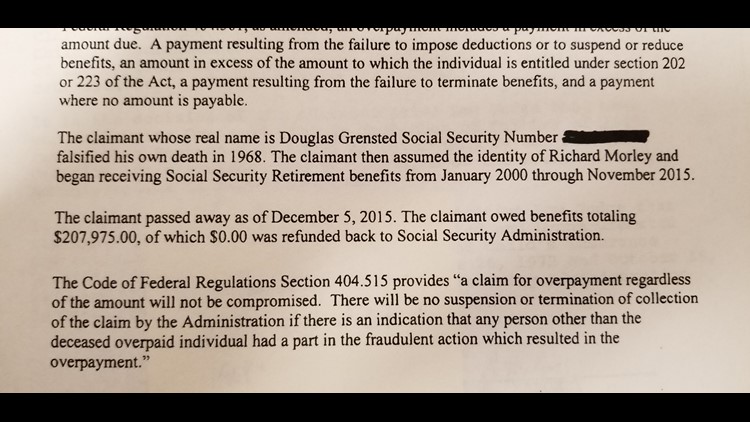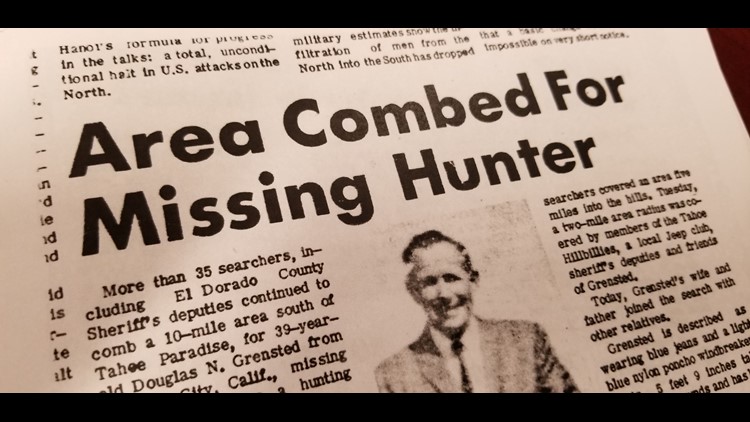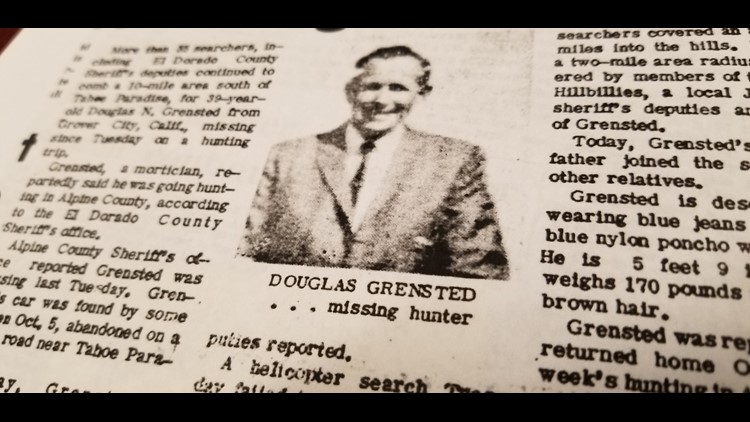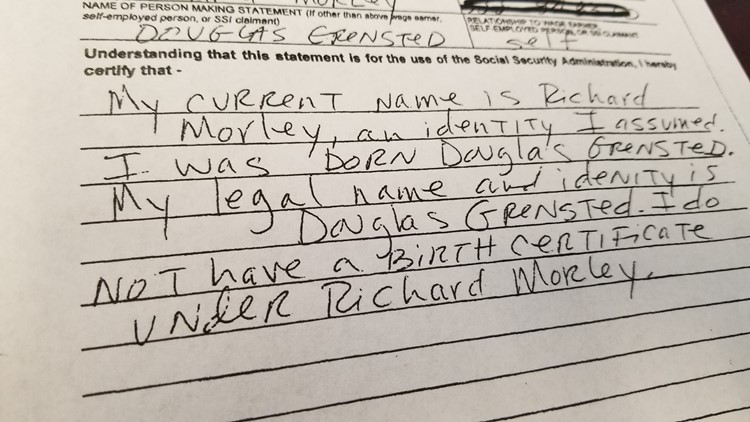A secret left a McMinnville family devastated in 1968. Almost five decades later the truth opened old wounds and has left them nearly $100,000 in collective debt to the Social Security Administration.
A missing man, a heartbroken family
Douglas Grensted went missing late September 1968. He was happily married and known as a devoted husband and father.
His girls, Beth and Lynne, were just 13 and 11, respectively, when he went on a hunting trip. He’d gone on these hunting trips several times before, but this time, he never came back.

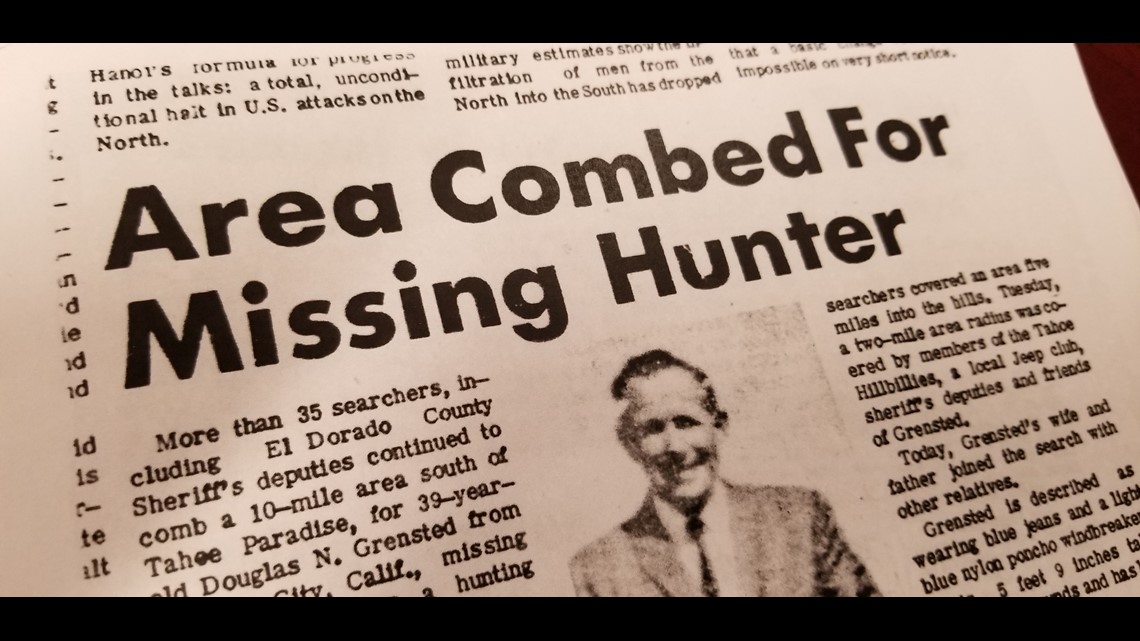
“I remember when he came to say goodbye,” Beth recalled, “and then he left and he was supposed to be back in a couple weeks.”
As you can imagine, for a child, losing your dad is devastating. But for sisters Lynne and Beth, and their mother Barbara Grensted, it was also heartbreaking.

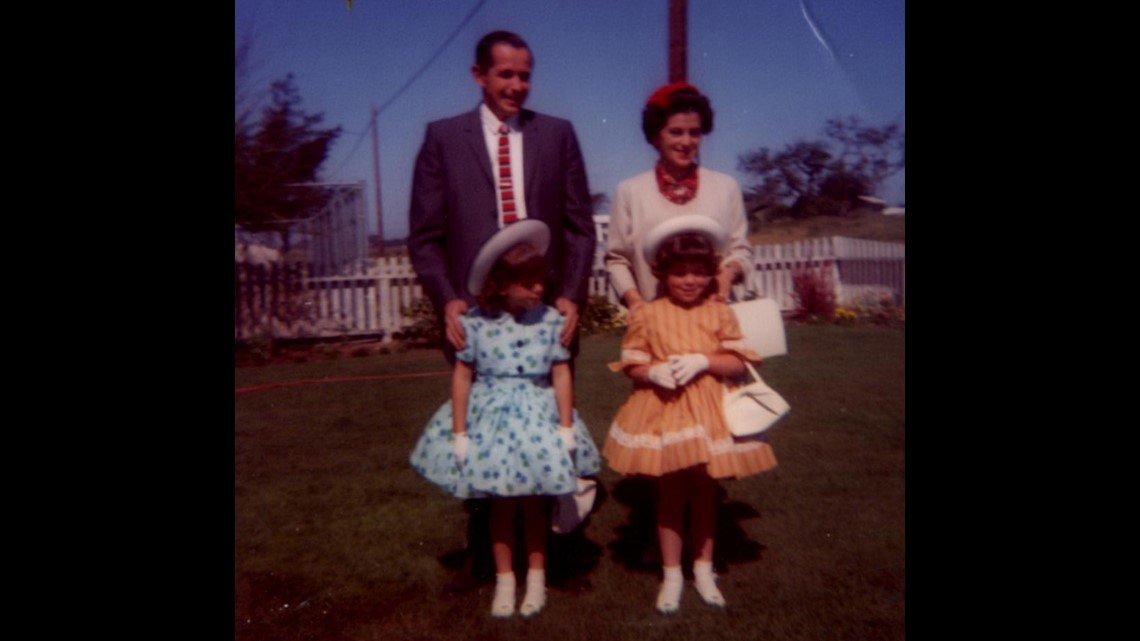
“Anytime there was somebody that came by, we'd run into the living room to see if it was him. We’d stand up on the baseboard heaters and look out the window to see if he was coming back,” said Beth.
The search for Douglas lasted weeks. Authorities used dogs, helicopters, community volunteers and even prisoners to scour the rugged terrain, hoping to find him.
“There were people from our church, there were people from the community that didn't even know us that went up to search for him,” said Lynne.
Ads were posted in the newspaper offering a reward for anyone who found him and local media outlets wrote stories as the exhaustive search continued.
Searchers eventually found evidence of his hunting trip.
They found his campsite, several deer tags, his bed roll and even his car, but there was no sign of Douglas.
The family man's secret
Lynne said after seven years, her father was legally declared dead.
“There was compelling evidence that he was indeed dead, and it was tough on us,” she said.

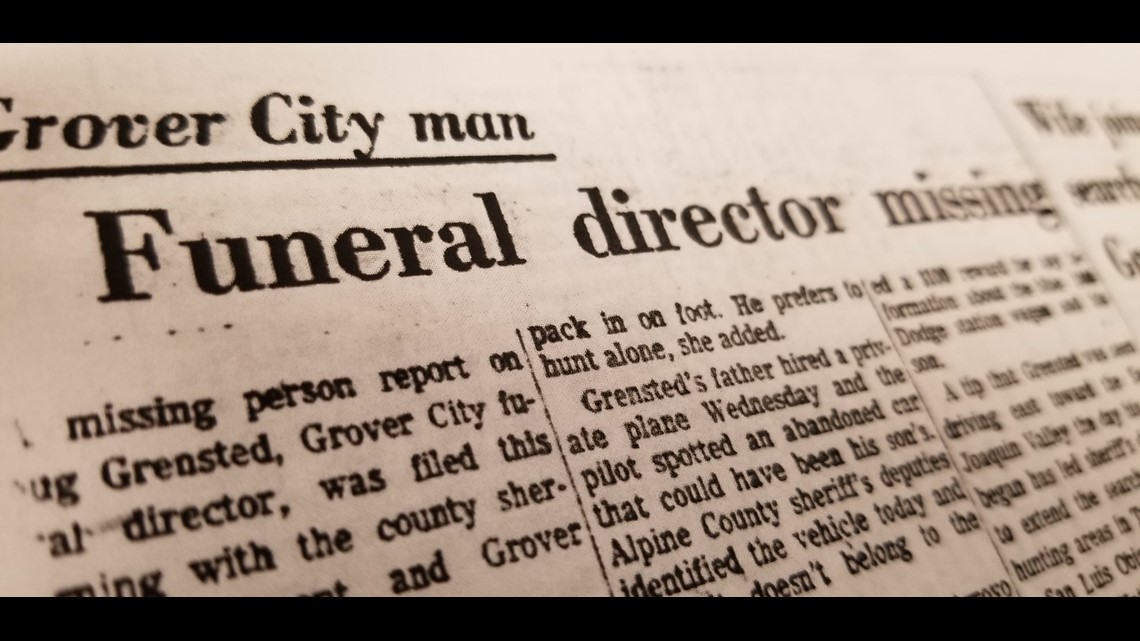
The unpleasant formalities that happen when a husband and father dies quickly went into motion.
The Social Security Administration paid Douglas' survivor benefits to the girls and their mom.
Beth received about $10,000 and Lynne received about $12,000. The girls were minors, so the money wasn’t used until years later when they went to college.

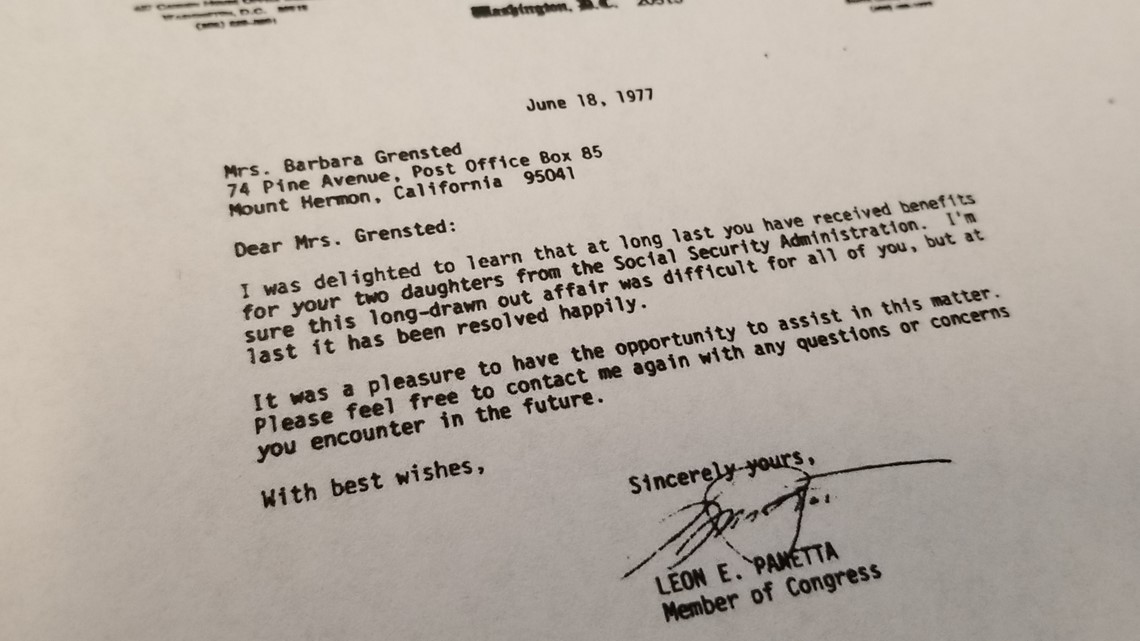
Their mother, Barbara, who was a stay-at-home parent, used just over $80,000 to pick up the pieces of their lives and raise her daughters.
“If you die and you have survivors -- a widow, widower or children -- they get a certain amount of benefits,” said Attorney Jeremy Bordelon, a specialist in Social Security benefits.
Bordelon is certified as a Social Security disability specialist by the National Board of Social Security Disability Advocacy. He said he’s seen benefits like this paid out thousands of times.
But he has never seen a case like this.
“This is pretty much as rare as they get,” he said.
In 2016, Beth, Lynne and their mom Barbara, all got letters from the Social Security Administration wanting the “survivor benefit” money back.
The Administration called it an "overpayment.” And their reason was mind-blowing for the family.
It turned out Douglas had been alive all of these years.
Immediately after hearing the news, Beth said she called her sister Lynne.
“And I step out and she said Dad was alive! And I can still picture sitting down in the theater and turning to my husband and saying, ‘Dad was alive all these years!’”
The details, were hard to believe.
Douglas Grensted did not die on a hunting trip back in 1968. He had in fact faked his death and ran off with his mistress.

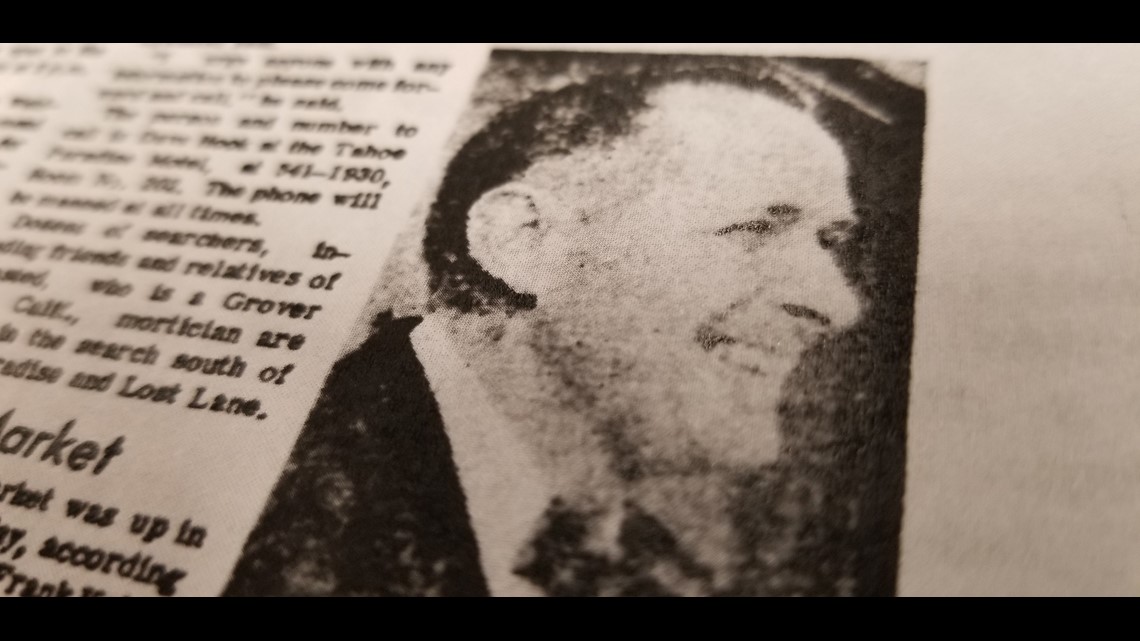
He never looked back and never contacted a soul from his old life. He left his wife and two young daughters. He even left his own parents behind. They died years later, never knowing he was actually alive.
Grensted, a mortician, had assumed the identity of a dead person named Richard Morley. Using his new identity, Grensted petitioned the Social Security Administration for a new social security number under Richard Morley’s name, which was granted.
Lynne said she, her sister and mother were all devastated by the news.
“All this time we thought my dad was a victim, that something happened to him," Lynne said. "And just getting hit with the whole thing of he’s been alive, we were the victims!”
Douglas, who had lived under the assumed identity of Richard Morley, legitimately died from pneumonia in Flagstaff, Arizona in December of 2015. That’s 47 years after he disappeared and four decades after he was originally declared legally dead.
But, regardless of the circumstances surrounding his fake death, the Social Security Administration wants the money back.
They demanded the “survivor benefit” money gets paid back in a matter of days. It’s money that Lynne and Beth don’t have, through no fault of their own.
Beth called the Social Security Administration to explain. She asked for proof that the dead Richard Morley from 2015 was in fact their father, Douglas Grensted, who was declared dead more than 40 years ago.
Beth spoke to an investigator from the social Security Administration.
“He says, ‘Well I have sufficient evidence,’ and I said 'What evidence do you have?' and he said, ‘Well I can't say.’”
But KGW obtained the evidence the Social Security Administration has.

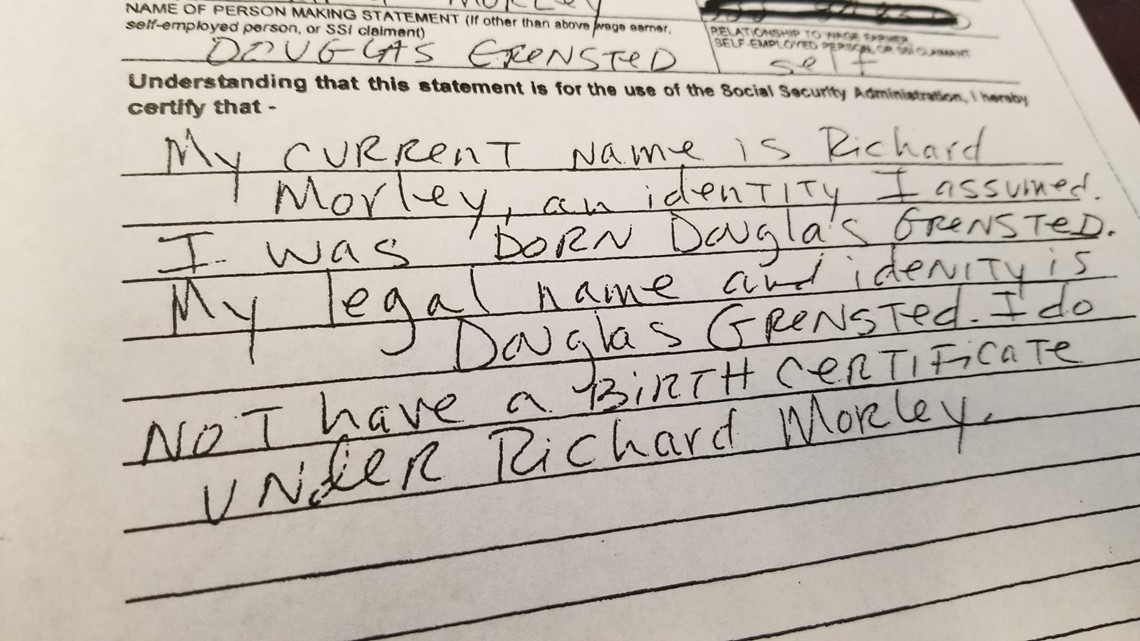
It’s a confession letter, hand-written by Douglas Grensted to the Social Security Administration’s investigator. It was written shortly before he died of pneumonia.
It reads, “My current name is Richard Morley, an identity I assumed. I was born Douglas Grensted. My legal name and identity is Douglas Grensted. I do not have a birth certificate under Richard Morley.”
Consequences of dying twice
Attorney Jeremy Bordelon said faking your own death and living under an assumed identity for decades creates complications for not only the surviving family, but also for the family of the man whose identity was stolen and the Social Security benefit system.
“I can't even imagine the level of mess that creates," Bordelon said.
Lynne and Beth say that level of deception and complication left their mom heartbroken, and expedited her death in September of 2018. Barbara was 89 years old.
“We had no idea that he was alive, and that I think that's what shook her the most was that he would leave his girls.”

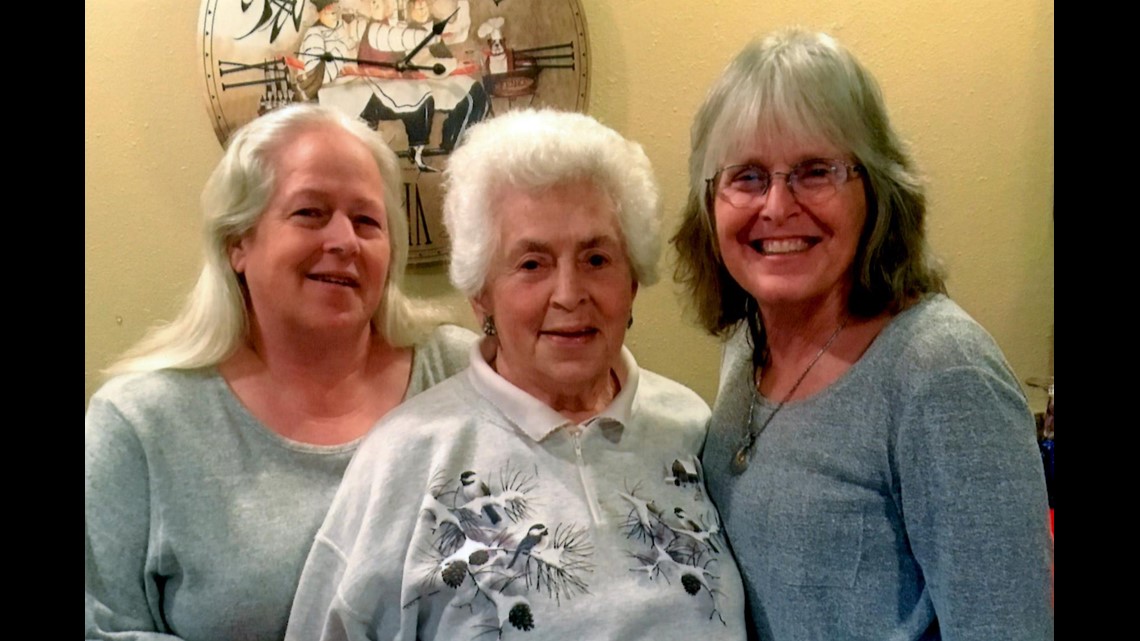
As for the survivor benefits, both Lynne and Beth have filed for waivers, asking the Social Security Administration to forgive the overpayment, especially since they lived all these years under the assumption that their father died in a hunting accident back in 1968.
Their waiver request is pending.
Before she passed away, their mom Barbara, also asked for a waiver.
An administrative law judge ruled that Barbara must pay ten dollars a month for the rest of her life, and upon her death, the remaining amount of more than eighty thousand dollars would be forgiven.
Barbara died less than two months after that decision. The Judge reversed his decision after Barbara’s death, and is now denying her waiver request.
Administrative law judge Patrick Hannon, issuing a statement 36 days after Barbara died, wrote, “Based on the waiver request filed, the overpayment amount of $87,058.60 is NOT waived. The claimant was liable pursuant to Section 204(a)(1)(A) of the Social Security Act. “
Lynne and Beth say they plan to appeal that ruling.

